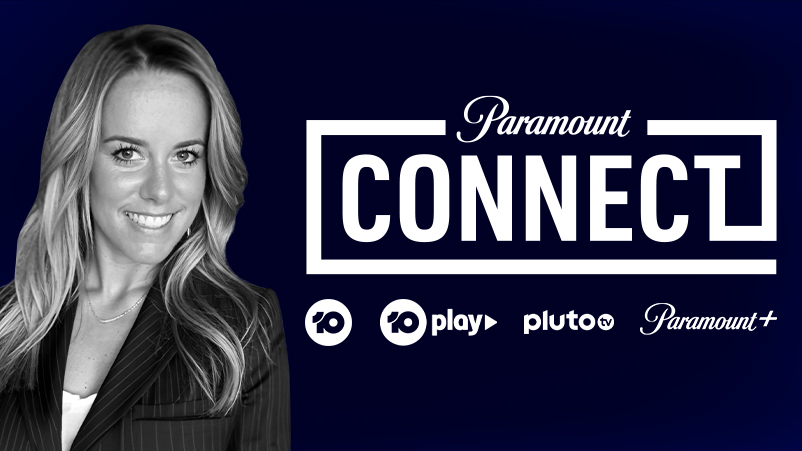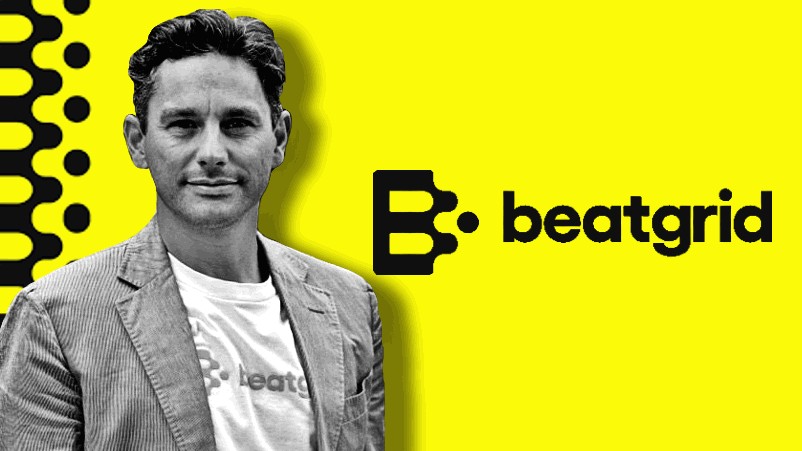The Marketing Academy 2022 intake: Wavemaker's Philippa Noilea-Tani, March One's Ben Coverdale and Zip's Debbie Wine on letting go of what you can't control, throwing your resume in the bin and slowing down to win
Six months into The Marketing Academy's 2022 Scholarship programme, Mi3 asked the class of '22 for their take on the key lessons to date. Wavemaker's Philippa Noilea-Tani, March One's Ben Coverdale and Zip's Debbie Wine on paying the cost to be the boss (and learning to be one), being okay with uncomfortable growth, why the talent crisis is no longer a crisis, and the need to build commercial acumen, fast.

TMA Scholars Philippa Noilea-Tani, Wavemaker; Ben Coverdale, March One; Debbie Wine, Zip.
Philippa Noilea-Tani, Chief Investment Officer, Wavemaker
TMA so far: What’s the single most valuable insight gleaned?
Success is defined by what makes you the happiest. Sounds like common sense, right? We’ve heard from so many incredible people, who spent the majority of their careers climbing an ever growing mountain of success, always chasing the next big title and pay check, only to get to the top of the mountain, to realise how much they’ve compromised along the way. To stop and truly think about what I’m striving to achieve personally and professionally, and what success in life means to me, has been exceptionally rewarding.
How to nail the TMAs entry requirements?
First up, it’s worth flagging this year was my third attempt. If you don’t make it through the first time around, know the perseverance is worthwhile! I received game changing advice in the lead up to attempt number three
- Authenticity is key
- Vulnerability is a strength
- To grow exponentially you need to fully understand your weaknesses, not just your strengths.
Best piece of advice you’ve ever been given and why?
“It’s impressive you can run the marathon, but as a leader, it’s not always the best way. Slow down and take people on the journey with you." My default is to move at the speed of light, and efficiency has in the past been something I’ve been praised for. In the last few years, I’ve been told to slow down more than once. However it’s not been until recently, through challenging times, that I’ve truly understood the implication my pace, has on the people around me. An important lesson for me, learned slowly.
The greatest professional lesson you have relearned/assumption to explode?
“Growth is uncomfortable because you’ve never been here before – you’ve never been this version of you.” Uncomfortable growth is positive, but scary, and that’s okay.
Greatest capability gap (individually and within your teams)?
Personally, I often get ahead of myself, and ironically, that holds me back. It’s easy for me to get caught up in the worry of the ‘what if’s’. In Fiji, they have a common phrase – ‘sega na leqa’, which means, no worries. I try everyday to draw inspiration from that sentiment. For the industry, I see the value of more empathy, compassion, authenticity and vulnerability, particularly in leadership.
Talent crisis: What’s the impact on your teams, how to navigate (what is keeping people from moving on?)
Crisis is a strong word for where the industry is at now, but a year ago I wouldn’t have said the same. Connection, Culture and Learning should sit at the heart of both retention and recruitment, and I can see the benefit of this focus across Wavemaker teams nationally.
Ben Coverdale, Director, March One Creative Advertising and Leads Agency
TMA so far: What’s the single most valuable insight gleaned?
Leaders are not born, they’re made. For the longest time, I’ve had people tell me that I had leadership qualities. So, even though I worked hard building my agency, I sat back and waited for ‘leadership to happen’…and it never did. The reason is that you must choose to be a leader, every time, over and over again. I don’t find being a leader natural. But because of TMA, I’m choosing to be a leader. I’m actively learning the skills.
How to nail the TMAs entry requirements?
1. Throw your resume in the bin. You’ve been nominated by an Alumni already so it’s a given that you’re good at what you do. Instead, tell them about you. Your hopes your fears. Your insecurities. Your TMA entry is your chance to have a meaningful conversation with wonderful humans. So, take it.
2. Be an uncut diamond. The panel of TMA is looking for people they can shape into someone better, not people who are perfect. So be humble and open about your challenges and how TMA can help you make a better world.
Best piece of advice you’ve ever been given and why?
Practice the Art of Calm Surrender. My business coach Laura Hefer coined the phrase – calm surrender. It’s when your head is telling you what you want – over and over and over – and for some reason there’s resistance from you. In these moments I practice the art of calm surrender. I give in to what my mind is trying to tell me and have faith that it will work out. (It always does.)
The greatest professional lesson you have relearned/assumption to explode?
If you want your career to lead you to a happy life, you need two things: To be able to admit to what you want; and to know that ‘wanting it’ is the only reason you need to go for it…everything else will fall into place.
Greatest capability gap (individually and within your teams)?
My team are ace. Love them. My biggest capability gap is negotiating money. I love to talk about ideas and concepts and campaigns, however when it comes to discussing what ideas are worth it is a very different story
Talent crisis: What’s the impact on your teams, how to navigate (what is keeping people from moving on?)
Our team hasn’t been impacted. We are dedicated to each person living their most free life which I believe keeps everyone happy and fulfilled.
Debbie Wine, CMO, Zip
TMA so far: What’s the single most valuable insight gleaned?
Most valuable insight: focus on what you can control, not what you can’t. When I have had the greatest impact, it’s when I am laser focused on working within the space I can control, being aware of what I cannot control. I hadn’t thought about it like this until it was pointed out to me through the program, but it’s a great short cut to understand this from the get-go.
How to nail the TMAs entry requirements?
I didn’t know exactly what the judges would be looking for, so I spoke to a couple of alumni before submitting my application. It might sound cliché but I knew I needed to show my authentic self – I treated this like any other marketing program, writing a brief including what I wanted the judges to think, feel and do. My manager wrote a glowing letter of recommendation and I was incredibly supported by Zip to invest in my career development through the Program. My mindset was always to get through to the next stage, rather than focusing on the finish line, and therefore my responses were tailored to the conversation at hand.
Best piece of advice you’ve ever been given and why?
Chris Savage shared the story of Trevor Hendy, former Australian Iron Man who would face different and changing conditions when entering the surf to compete. His motto “the conditions are always perfect” has stuck with me and I’ve actually adopted this both at home with the kids and at Zip, where this year has thrown significant change and ambiguity. When the conditions are always perfect, you lead from the front, with confidence, authenticity and vulnerability.
The greatest professional lesson you have relearned/assumption to explode?
The greatest lesson I have learned and relearned is to listen to people and signals. Oscar Trimboli recently shared that 86 per cent of what people think is unsaid. Listening has really transformed my people leadership and been key to my success in driving transformation across organisations and understanding customers, developing strategies to address pain points and opportunities. For example, I now do 20min 1:1s with the extended marketing team twice a year to understand their development needs, the broader team culture and how I can help. I encourage regular double jacking with our customer and merchant call centre agents to ensure we understand our customers. I hold regular customer and merchant immersion focus groups to ensure the Zip leadership team is also in touch with our customers. I find these tools help bring customer and employee pain points to life, more than the employee or customer survey feedback.
Greatest capability gap (individually and within your teams)?
The greatest capability gap for my team is commercial acumen, truly understanding the drivers of our business, how we make money, and the opportunity to impact the bottom line through pulling the right levers and the right time. A strong marketing leader is a strong commercial leader, and my broader experience and commercial acumen is why I have been successful in this role. Marketing is more than a comms engine, and the more commercial the team, the greater the outcomes, the greater the impact on customers, staff engagement and company performance.
Talent crisis: What’s the impact on your teams, how to navigate (what is keeping people from moving on?)
The war on talent and great resignation are real and the biggest opportunity is to address the two key reasons why people leave and why people join organisations; their direct manager and their development opportunity, particularly amongst Millennials and Gen Z. I am laser focused on the development of my people managers and my broader team. I believe that people will be at their best if they are leveraging their strengths and have the capability to do their role effectively. Some of the programs I implement are at an individual level, some are broader based on feedback from the team. For example, I run short sharp leadership capability sessions with people managers monthly, bring in guest speakers from my network to support the team on specific topics, identify external and internal mentors for individual team members and hold quarterly development days, purely focused on how we lift our performance as individuals and as a team. I also hold 1:1s with the extended marketing team twice a year and my people leaders hold monthly development conversations with their team members. These are a few of the tactics I use to bring out the best in my team every day, which translates into reduced attrition and attracting talent.


